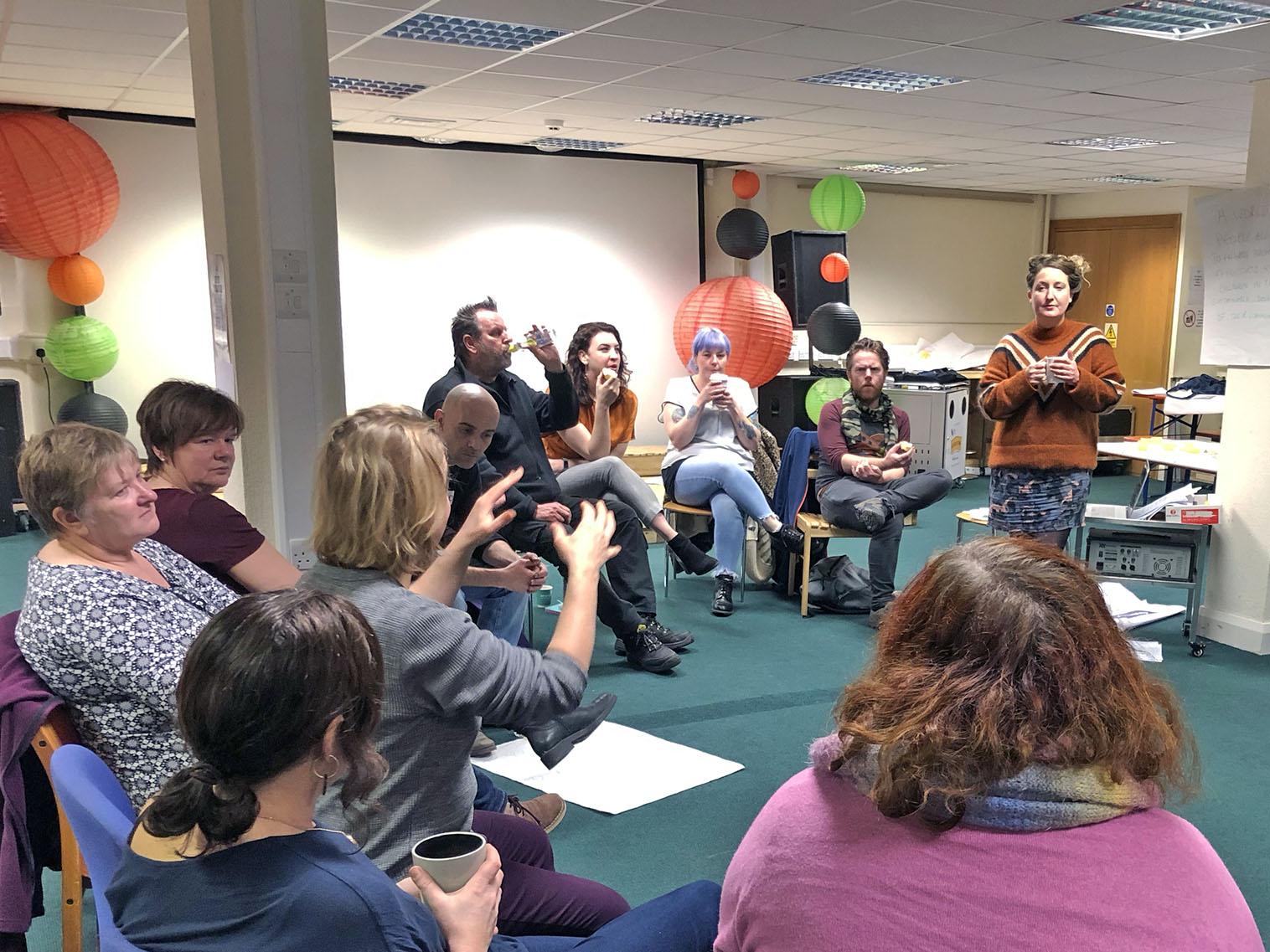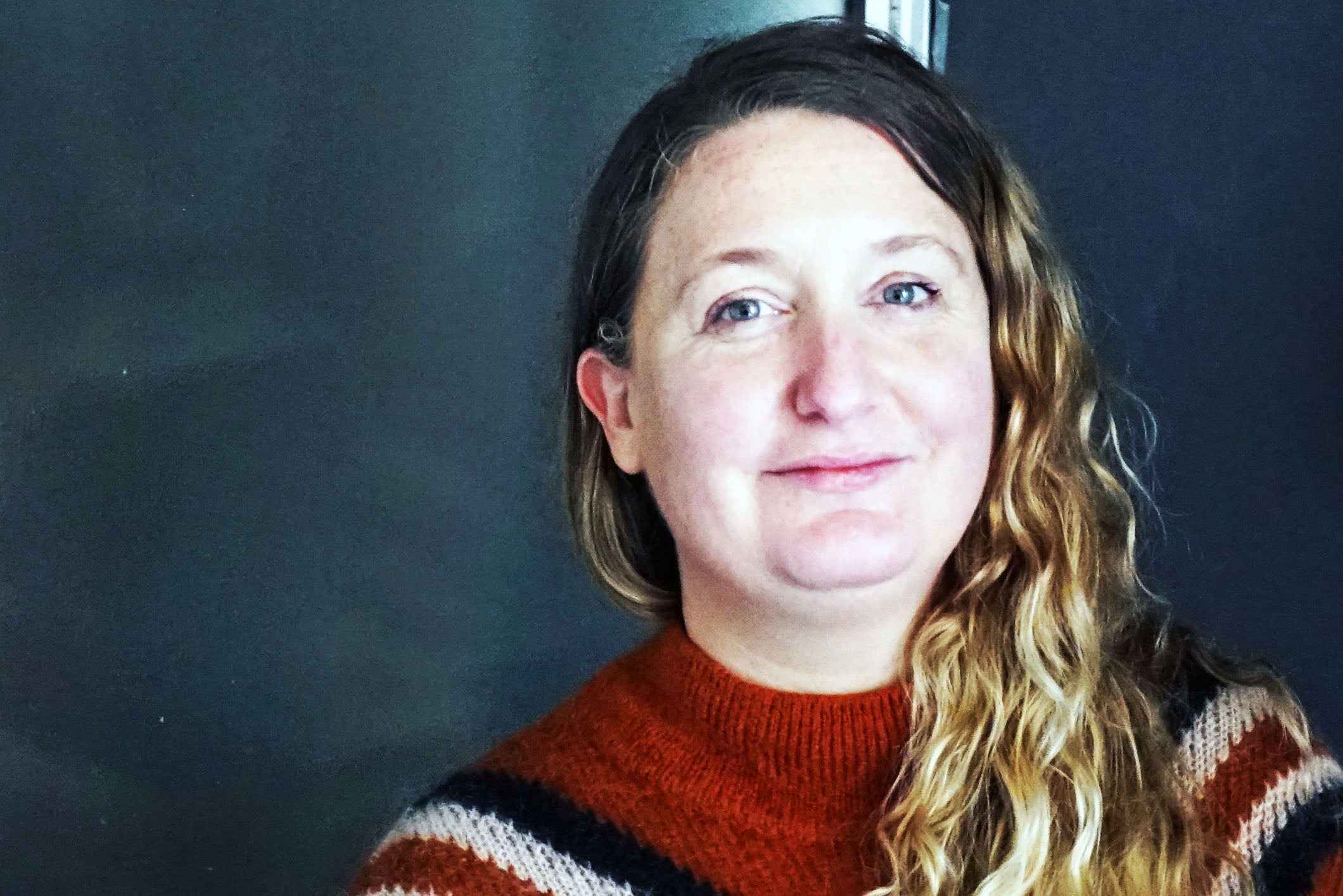A People’s Production Lab is reimagining Preston using art – and cooperatives
Preston has become a testing ground for a new way to run a local economy

It’s Saturday morning in Preston and groups of people are hunched over whiteboards printed with maps of their neighbourhoods, covering them with Post-it notes.
“Green land for dog walks,” one reads. A street is marked “dark @ night” and another “hangout spot”. The groups are identifying what’s already available in neighbourhoods and what is desirable. It is part of the social action lab, a project with the British Council and the University of Central Lancashire to encourage Preston residents to become more active within their communities by offering them seed funding to develop projects.
The social action lab, which brings together artists, community activists and residents, is exactly the kind of thing Ruth Heritage hoped to support in Preston when she opened the People’s Production Lab in November 2017. The next step is to turn the many businesses and artists working within the Lab into a cooperative, owned and run by the people who work there, to make it sustainable.
Preston has become a testing ground for a new way to run a local economy. The “Preston model” is rooted in the development of cooperatives, or businesses owned by workers, rather than shareholders in remote locations looking to extract value with stocks and dividends.
Cooperative startups have been shown to be more resilient during times of economic stress. While 44 per cent of new businesses survive their early years, 80 per cent of cooperatives go on to thrive, according to a 2018 report on the cooperative economy by Cooperatives UK.
Preston Council has just announced up to £1m in funding to support the development of cooperatives in the area. The funding will come from Preston City Council, the University of Central Lancashire and the Open Society Foundations, which was started by hedge fund billionaire George Soros. It will create 10 new cooperatives, owned and run by workers in Preston, building on the work of community businesses with ambitions to become cooperatives, like the People’s Production Lab and others.

“We want to provide equitable employment for graduates in the first instance,” says Mark Porter, a senior lecturer in web design at the University of Central Lancashire who is starting a cooperative called Preston Digital Foundation.
Mr Porter believes working at the People’s Production Lab will provide the basis for cooperation between cooperatives, one of the seven basic principles of working in this way. “Our next steps are to complete the registration process to get the coop up and running in time for summer and the next cohort of graduates and enable us to start generating revenue.”
Heritage started producing and commissioning arts and culture in Preston a decade ago under the name They Eat Culture. She began to imagine a fully-equipped creative space for the people of Preston, where digital businesses and artists could share resources and work together. In 2017, Michael Conlon, the manager of a local construction firm, suggested Heritage take on the multi-storey building at 55 Guildhall Street in the town centre. The building, previously used as offices by Lancashire County Council, had been empty since the departure of a faith school.
Within a year, Heritage and They Eat Culture have transformed the commercial building into creative spaces. Peering through the windows, I see white walls of former corporate spaces filled with equipment for a wood shop and tool library, a co-working space with desks and chairs donated by a local solicitor, a hack space with 3D printers and a sound studio with a green screen for video work. Art hangs from a washing line from the ceiling of one of the offices – now a screen printing studio. In the hallway, Heritage gets inside a makeshift photo-booth that went on tour with accompanying interview cards saying “talk to me about crime” and “talk to me about loneliness”.
“There are artists studios and shared spaces in Preston, but we’re trying to evolve a way of creating shared facilities that people can use rather than individual spaces,” Heritage says.
Anthony King runs a startup screen printing studio called Priestown Press from the People’s Production Lab. “I was out of work for quite a while after some surgery,” King says. “My wife suggested I get back into art. The Lab has allowed us to expand and have the space to be artists. It’s subsidised, so it’s beneficial for artists who are struggling. There aren’t that many in Preston.”
Priestown Press prints garments for street artists in Preston and London. Through the social action lab, King has been working on turning the studio into a community resource and a place for art therapy.
“It’s evolving into a social enterprise,” King says. “Especially for mental health, art can be very therapeutic. Suicide is on the rise among men and younger people, so if we can do projects that get kids doing things, rather than keeping themselves to themselves, then it can only help.”
Tom Stables is the chair of Digital Lancashire, a non-profit organisation that supports the digital economy in Lancashire. Stables says the area is already home to multiple agencies, software houses and creative enterprises. Digital Lancashire has worked with accountants and TV companies, helping them develop their digital clientele and acquire funding to expand.
Stables is considering basing Digital Lancashire within the People’s Production Lab where it can nurture partnerships with other businesses. “Having the People’s Production Lab on our doorstep is terrific,” he says. “As well as being a place that our board meet, a number of our members have the space to grow and thrive.”
Heritage talks breathlessly of plans for live storytelling projects, comedy programmes developing new talent, a community culture guide and a vegan pop-up experience. “I want there to be a lot of action on the ground,” she says. “Preston has been held back by being off the beaten track and by not having relationships with central government but the tide is turning. The time is now.”
Join our commenting forum
Join thought-provoking conversations, follow other Independent readers and see their replies
Comments